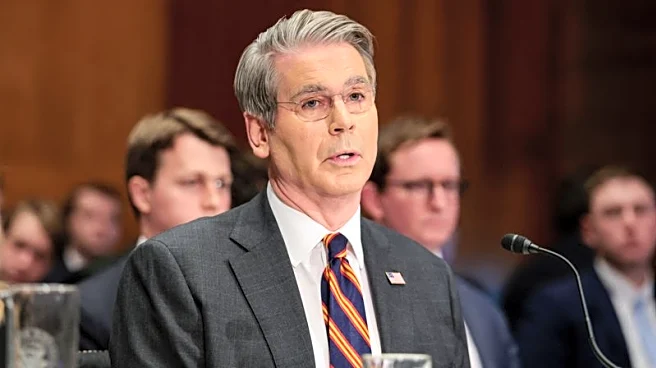What is the story about?
What's Happening?
The American Institute of CPAs (AICPA) is advocating for the federal government to ensure that all Internal Revenue Service (IRS) employees remain on duty during the current government shutdown. This call comes as the October 15 deadline for filing C corporation tax returns and individual tax returns for those who requested a six-month extension approaches. The Treasury Department has outlined a contingency plan that allows the IRS to operate until October 7 using funds from the Inflation Reduction Act of 2022. However, the AICPA is pushing for the IRS to maintain full staffing beyond this period to prevent disruptions. The organization highlights the potential negative impact of a reduced IRS workforce during critical tax periods, citing past shutdowns where taxpayers faced unresolved issues due to limited IRS operations.
Why It's Important?
The AICPA's call to keep the IRS fully operational during the shutdown is significant due to the potential consequences for taxpayers and the broader tax system. A reduced IRS workforce could lead to delays in processing tax returns, issuing refunds, and providing necessary guidance on new tax laws. This situation could create confusion and stress for taxpayers, tax practitioners, and the IRS itself. The AICPA warns that an extended shutdown could also affect the start of the 2026 tax filing season, impacting the government's ability to collect revenue efficiently. Ensuring the IRS remains fully staffed is crucial to maintaining the integrity and functionality of the U.S. tax system during this period.
What's Next?
If the government shutdown continues beyond October 7, the IRS may face challenges in maintaining its operations without additional funding or authorization. The AICPA and other stakeholders will likely continue to advocate for measures to ensure the IRS can function effectively during the shutdown. The Treasury Department and Congress may need to explore alternative funding solutions or legislative actions to support the IRS and prevent disruptions in tax services. The situation will require close monitoring by taxpayers, tax professionals, and policymakers to mitigate any adverse effects on the tax system.

















